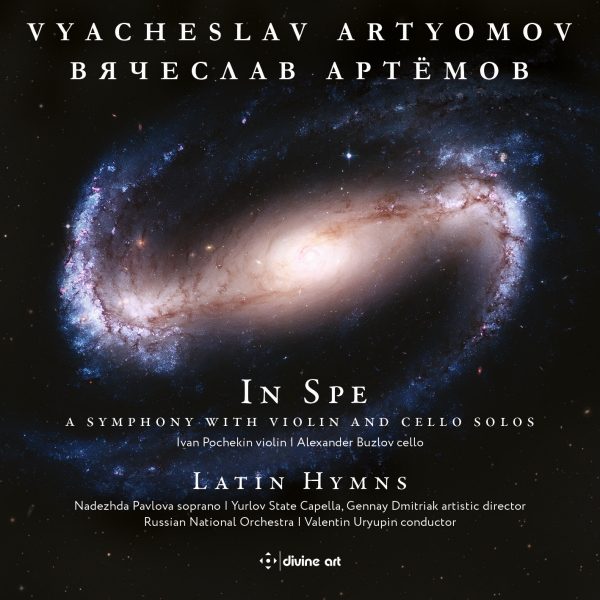MusicWeb International
Artyomov is one of a group of Russian and East European composers – others include Kancheli, Silvestrov and Pärt – who grow up in the days of the Soviet empire, discovered European modernism and went on to forge individual and distinctive idioms. They also each tend to be the object of a cult. I was very taken with a disc of Artyomov I had for review last year so am glad to have been able to hear more of him.
Artyomov has given much of his career to writing big dramatic symphonies. These he likes to link into cycles. There is Symphony of the Way, a tetralogy, of which three parts have been recorded. In spe (In hope), on this disc, is the second part of a trilogy collectively titled The Star of Exodus, of which the first part is In Memoriam, subtitled A symphony with violin solo, which was completed in 1984 and has been recorded. In Spe had its origin in a request by Rostropovich in 1993 for a cello concerto, but the composer did not begin work on it until 2002 and only finished it in 2014, by which time it had become a symphony, not a concerto, and with two soloists rather than one, with the subtitle A symphony with violin and cello solos. It is therefore much the most recent work on all these discs. It is a massive work, in one movement but twenty-one sections which play continuously. The idiom is more reminiscent of Scriabin’s Prometheus than anything else, but is considerably more turbulent though shot through with moments of calm and beauty. There is a very flowery sleeve note by Valeriya Lyubetskaya, who is the composer’s wife, from which I gather there is a programme which follows the vicissitudes of a hero. I think most listeners will simply follow the changing moods without trying to link them to the story. It is much more of a symphonic poem than a symphony – at any rate, I did not find a symphonic argument I could easily follow. The violin and cello soloists have occasional prominent passages but the work is not a concerto. The third part of the trilogy does not yet seem to have appeared.
The Latin hymns are four in number: a passage from what in the Vulgate is Psalm 50, but in English Bibles is Psalm 51; the short prayer known in English as the Hail Mary; the Marian antiphon Salve Regina; and the vespers hymn Ave Maris Stella (Sea Star, we acclaim thee). Strictly speaking, only the last of these is a hymn, but no matter. They are set in very rich, indeed lush, late romantic-expressionist idiom, with very full writing for the choir and a solo soprano. I was reminded at times of Szymanowski’s Stabat Mater. From moment to moment they are often beautiful, but there is a certain lack of variety in them. The Latin texts are given but without translations; however, these texts are easy to find online.
This disc is newly recorded and very well too, in a reverberant acoustic which suits the music. The very striking covers are an attractive feature of this series.
Artyomov is an interesting, indeed impressive composer, though I would resist some of the claims made for him. He is certainly worthy to be considered alongside the three other composers I mentioned at the start. I have yet to hear his RequiemArtyomov: Requiem, which is the work which made his reputation . But all his discs are well worth exploring.
[edited from joint review of three albums]
@divineartrecordingsgroup
A First Inversion Company
Registered Office:
176-178 Pontefract Road, Cudworth, Barnsley S72 8BE
+44 1226 596703
Fort Worth, TX 76110
+1.682.233.4978












